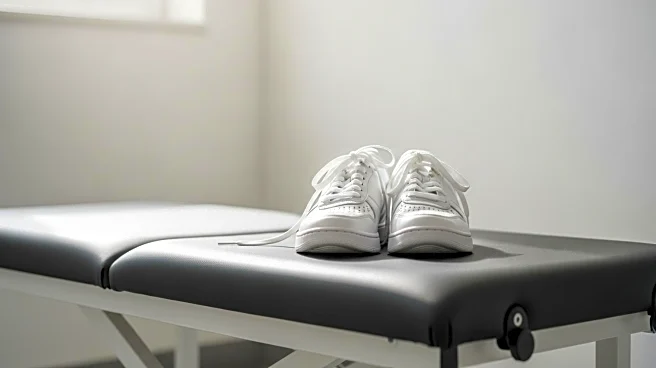What's Happening?
JuJu Watkins, a standout player for the USC Trojans, announced she will miss the 2025-26 college basketball season to focus on recovering from a right ACL tear. Watkins sustained the injury during the second round of the NCAA tournament. She shared the news on her Instagram, expressing gratitude for the support she has received during her recovery. Watkins, who averaged 23.9 points, 6.8 rebounds, 3.4 assists, and 2.2 steals as a sophomore, is considered a top WNBA prospect. USC coach Lindsay Gottlieb emphasized the importance of Watkins' health and well-being, supporting her decision to prioritize recovery. Watkins has been instrumental in USC's recent successes, including leading the team to the 2024 Pac-12 tournament title and the 2025 Big Ten regular-season crown.
Why It's Important?
Watkins' absence is a significant loss for USC, as she has been a key player in their recent achievements. Her decision to sit out the season underscores the importance of athlete health and recovery in collegiate sports. Watkins' recovery journey is closely watched, given her potential future in professional basketball. USC will need to adapt to her absence, especially with the departure of several other players due to graduation and transfers. The team will rely on incoming talent, including No. 1 recruit Jasmine Davidson, to maintain their competitive edge. Watkins' situation highlights the challenges athletes face with injuries and the impact on team dynamics and performance.
What's Next?
USC will focus on integrating new players and adjusting strategies to compensate for Watkins' absence. The team aims to continue their strong performance in upcoming seasons, leveraging new talent and existing team strengths. Watkins will continue her recovery, with hopes of returning stronger for future competitions. Her progress will be closely monitored by fans and scouts, given her potential impact in the WNBA. USC's ability to adapt and Watkins' recovery will be pivotal in shaping the team's future success.
Beyond the Headlines
Watkins' injury and recovery process bring attention to the broader issue of athlete health management in college sports. It raises questions about the support systems in place for injured athletes and the long-term implications of sports injuries. The situation also highlights the resilience and determination required by athletes to overcome setbacks and return to their sport. Watkins' journey may inspire discussions on improving injury prevention and recovery protocols in collegiate athletics.









